Parent Study

How can parents encourage and support their children's academic motivation ?
Academic motivation is a crucial factor in a child's educational journey. Here are some tips on how parents can encourage and support their children's academic motivation: 1. Set goals and expectations by discussing interests and strengths, creating a plan, and providing regular feedback. 2. Create a conducive learning environment by providing a quiet study space, minimizing distractions, and encouraging breaks and physical activity. 3. Offer encouragement and praise by acknowledging efforts and achievements, praising hard work and dedication, and celebrating successes. 4. Be involved in their education by attending parent-teacher conferences, showing interest in their studies, and helping with homework when needed. 5. Model good study habits by demonstrating a positive attitude towards learning, practicing time management and organization skills, and showing perseverance and resilience when faced with challenges.

What are the benefits of parent-teacher collaboration in education ?
The article discusses the importance of parent-teacher collaboration in education. It mentions that such collaboration can lead to improved student performance, increased student motivation, enhanced parental involvement, improved classroom management, and greater access to resources. Overall, it emphasizes the significance of parents and teachers working together to create a supportive learning environment for students.

What strategies can be used to promote parent-teacher collaboration in schools ?
Promoting parent-teacher collaboration in schools is crucial for student success and well-being. Strategies include open communication, involvement opportunities, parent education, shared responsibility, technology integration, and celebrating diversity. Regular updates, volunteer programs, workshops, home-school agreements, online portals, and multicultural events are among the tactics that can foster a strong partnership between parents and teachers.

What is the importance of building a strong parent-teacher relationship in supporting student learning ?
The Importance of Building a Strong Parent-Teacher Relationship in Supporting Student Learning Building a strong parent-teacher relationship is crucial for supporting student learning. This partnership between parents and teachers can have a significant impact on a child's academic success, social development, and overall well-being. A strong parent-teacher relationship fosters open and effective communication channels, creates a supportive learning environment, promotes shared responsibility for a student's education, and cultivates positive attitudes toward education. By working together, parents and teachers can help students reach their full potential and prepare them for success in all aspects of life.

What are some fun and engaging parent-child activities ?
The text provides a list of fun and engaging parent-child activities that can strengthen the bond between parents and children while promoting creativity, physical fitness, teamwork, and learning. The activities are categorized into six main topics: arts and crafts, outdoor adventures, sports and games, cooking and baking, educational activities, and music and dance. Each topic is further divided into subtopics with specific activities that families can enjoy together. For example, under arts and crafts, families can set up an art station for painting and drawing or make paper crafts like origami figures. Under outdoor adventures, families can explore nature trails or plan camping trips. The text emphasizes the importance of finding activities that both parents and children enjoy and can participate in together.

How can I increase my motivation to study ?
Motivation is crucial for success in education, but staying motivated can be challenging. To increase your motivation to study, set clear goals, create a study plan, find a study group or partner, stay positive, and reward yourself for meeting goals.

What are some tips for leading a successful study group ?
Leading a successful study group requires careful planning, effective communication, and strong leadership skills. To achieve this, it is important to set clear objectives, organize meetings effectively, encourage active participation, foster collaboration and teamwork, and evaluate progress regularly. By following these tips, you can create a productive and enjoyable learning experience for all members of your study group.
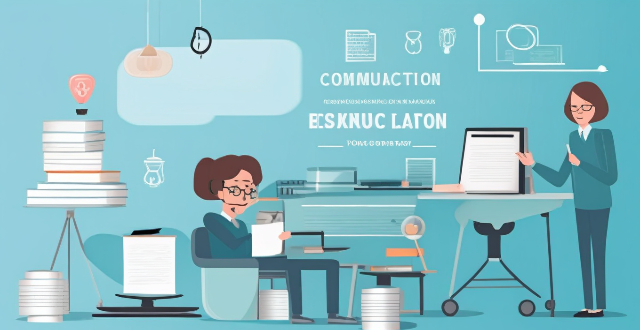
How can I effectively communicate with my study group members ?
Effective communication is essential for the success of any study group. To communicate better with your study group members, set clear objectives, use active listening skills, encourage open discussion, provide constructive feedback, and stay organized. By following these tips, you can work together to achieve your academic goals.
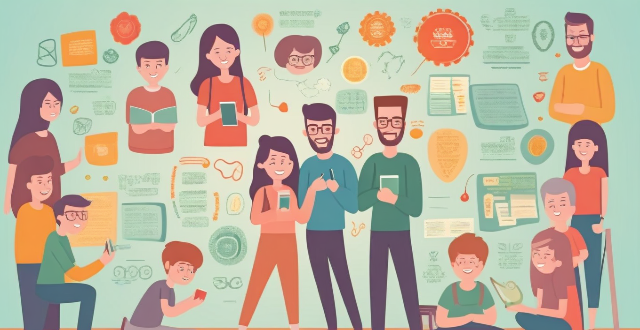
What are some common challenges that arise in parent-teacher collaboration, and how can they be overcome ?
Common challenges in parent-teacher collaboration include lack of communication, time constraints, cultural differences, resistance to change, unclear roles and responsibilities, conflicting priorities, lack of trust, inconsistent messages, limited access to information, and emotional barriers. To overcome these challenges, strategies such as improving communication, addressing time constraints, bridging cultural differences, embracing change, clarifying roles and responsibilities, building trust, facilitating access to information, and addressing emotional barriers can be implemented. By employing these strategies, parents and teachers can work together more effectively to support student success while overcoming common challenges in their collaboration.

What are some effective study techniques for college students ?
**Effective Study Techniques for College Students:** College students can improve their academic performance by adopting effective study techniques. These include creating a study schedule, finding a suitable study environment, using active learning strategies, breaking information into chunks, practicing retrieval and review, staying organized, collaborating with peers, maintaining a healthy lifestyle, and seeking help when needed. Consistency, minimizing distractions, engaging with the material, chunking information, quizzing oneself, spaced repetition, utilizing note-taking systems and digital tools, participating in study groups, getting enough sleep and exercise, and leveraging academic support services are all crucial elements of successful studying. It's important to experiment and find out which methods work best for individual needs.
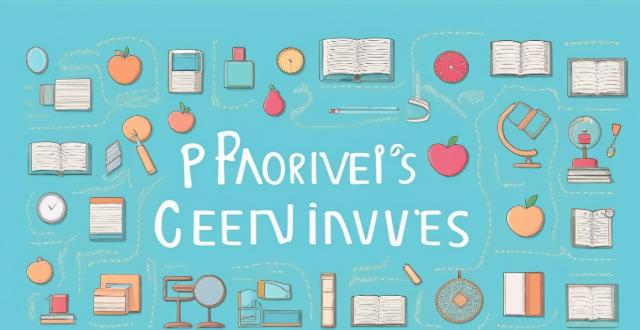
How can I improve my study habits to increase my learning efficiency ?
The text provides a comprehensive guide on how to improve study habits for higher learning efficiency. It suggests developing a consistent study schedule, creating an optimal study environment, using active learning techniques, breaking down study material, employing time management tools, setting clear goals, taking care of oneself, utilizing teaching as a learning tool, seeking help when needed, and reflecting on one's study methods. These strategies aim to enhance focus, concentration, memory retention, understanding, energy, interest, objectives, progress, brain rest, nourishment, knowledge reinforcement, assistance, perspectives, engagement, effectiveness evaluation, and approach adaptation. Consistency and self-reflection are emphasized as key factors in continuous improvement of academic performance.

What are some effective strategies for improving study habits and motivation ?
Effective strategies for improving study habits and motivation include setting clear goals, creating a study plan, eliminating distractions, using active learning techniques, staying motivated, seeking help when needed, and practicing self-care. These strategies can lead to academic success.
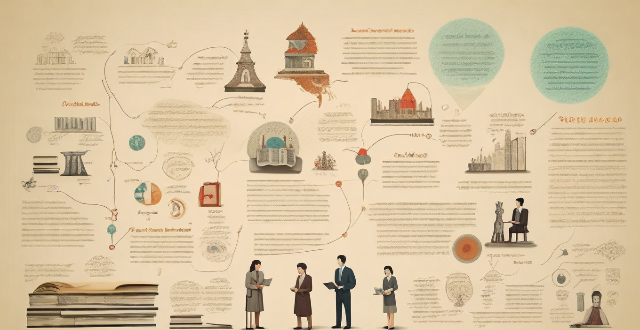
What are some effective study techniques for learning history ?
Effective study techniques for learning history include understanding chronological order, using visual aids, active reading, group study, practice writing, connecting historical events with the present, using multimedia resources, and visiting museums and historical sites. These methods can help deepen understanding and make the subject more engaging and rewarding.

How do I create an effective study plan ?
Creating an effective study plan is crucial for academic success. Here are some steps to help you create a successful study plan: 1. Set clear goals that are specific, measurable, achievable, relevant, and time-bound (SMART). 2. Assess your time and determine how much you can realistically dedicate to studying each day/week. 3. Allocate time for each subject based on difficulty level and proficiency. 4. Create a schedule using a calendar or planner and stick to it as much as possible. 5. Incorporate short breaks during study sessions to avoid burnout and maintain focus. 6. Regularly review progress and adjust the study plan accordingly. 7. Eliminate distractions by finding a quiet place to study and turning off unnecessary devices. 8. Stay motivated by reminding yourself of goals and celebrating small achievements. 9. Seek help when needed from teachers, tutors, or classmates. By following these steps, you can create an effective study plan that will help you achieve academic success while managing your time efficiently. Remember to stay flexible and adjust your plan as needed to accommodate changes in your schedule or priorities.

What are the advantages and disadvantages of working in a study group ?
The advantages of working in a study group include improved learning outcomes, enhanced collaboration skills, motivation and accountability, and exposure to diverse perspectives. However, the disadvantages include time management challenges, unequal participation, lack of individual attention, and personality conflicts. To make the most of a study group, it is important to establish clear guidelines, set expectations for participation, and communicate openly with group members about any issues that arise.

How can I encourage active engagement in a study group ?
This article discusses strategies for encouraging active engagement in a study group, including setting clear goals and objectives, fostering a collaborative environment, assigning roles and responsibilities, providing opportunities for feedback and reflection, using technology to facilitate engagement, and offering incentives for participation. The author emphasizes the importance of active engagement for the success of a study group and encourages readers to make it a priority from the start.

What are some good tools for creating and sharing study materials ?
This article discusses various tools that can be used for creating and sharing study materials. Google Docs, Canva, and Quizlet are some of the best tools for creating study materials, while Dropbox, Padlet, and Edmodo are great for sharing them. These tools offer features like collaboration, accessibility, integration, design, gamification, storage, security, visualization, educational focus, and assessment. By utilizing these tools, students can enhance their learning experience and collaborate with others more efficiently.

How can I stay focused during long study sessions ?
To stay focused during long study sessions, create aTo stay focused during long study sessions, create a by minimizing distractions create a conducive environment by minimizing distractions and optimizing your workspace. Establish a routine with clear objectives and stick to a schedule. Use time management techniques like the Pomodoro technique and prioritize tasks. Stay motivated and engaged by rewarding yourself and mixing up your study methods. Take care of yourself by getting adequate sleep, eating healthy meals, and exercising regularly.

How can I create an effective study schedule for exams ?
Creating an effective study schedule for exams is crucial for academic success. To create a study plan that works for you, follow these steps: 1. Identify your goals and prioritize your study time effectively. 2. Assess your time availability and be realistic about the amount of time you can dedicate to studying without sacrificing other important aspects of your life. 3. Break down the material into smaller sections or topics and map out when you will study each topic using a planner or calendar. 4. Create a study schedule based on your goals, time availability, and material breakdown. Allocate enough time for each topic, schedule regular breaks, incorporate different study techniques, and be flexible with your schedule. 5. Stick to your schedule as much as possible and use reminders or alarms to help you stay on track. 6. Periodically evaluate your progress and adjust your study schedule accordingly. By following these steps, you can maximize your chances of achieving academic success while minimizing stress and anxiety during exams.

What are the benefits of collaborating in a study group ?
**Benefits of Collaborating in a Study Group** Collaborating in a study group offers numerous benefits to students, including enhanced learning and understanding, improved academic performance, development of valuable skills, and emotional and social benefits. By participating in study groups, students can gain different perspectives, active participation, immediate feedback, better grades, increased retention, preparation for class discussions, communication skills, teamwork and collaboration, critical thinking, time management, reduced anxiety and stress, building friendships, increased motivation, and networking opportunities. Overall, collaborating in a study group is an excellent way to make the most out of your educational journey while building lasting relationships along the way.

How do I adapt my study plan if it's not working as expected ?
If your study plan is not working as expected, it's important to identify the root cause of the problem and make adjustments accordingly. Here are some tips on how to adapt your study plan: ### Identify the Problem 1. Assess your progress 2. Identify potential roadblocks 3. Reflect on your study habits ### Make Adjustments to Your Study Plan #### Change Your Study Environment - Find a quiet space - Create a comfortable study area #### Improve Your Time Management Skills - Create a schedule - Prioritize tasks - Use time-management tools #### Adjust Your Study Methods - Try different study techniques - Break down complex topics - Take breaks #### Seek Help When Needed - Ask for clarification - Join a study group - Consider hiring a tutor By identifying the problem and making adjustments to your study plan, you can improve your chances of success and achieve your academic goals. Remember to be patient and persistent in your efforts, and don't be afraid to seek help when needed.

How can parents and teachers work together to promote academic achievement and success for all students ?
Parents and teachers play a crucial role in the academic success of students. By working together, they can create an environment that encourages learning, growth, and achievement. Here are some ways parents and teachers can collaborate to promote academic success: 1. Open Communication: Maintaining open and regular communication is essential. Teachers should provide updates on students' progress, challenges, and achievements. Likewise, parents should share any concerns or observations about their child's learning and behavior. 2. Supportive Home Environment: Parents should create a conducive home environment for learning by providing a quiet study space, setting a routine for homework and reading, and encouraging curiosity and exploration. 3. Partnership in Education: Both parents and teachers share the responsibility of educating students. Parents should support what teachers do in the classroom by reinforcing skills at home and ensuring that homework is completed. 4. Encourage Involvement in School Activities: Parents can volunteer at school events or participate in parent-teacher organizations. This not only helps the school but also gives parents insight into the educational process. 5. Promote a Positive Attitude Towards Learning: Celebrate effort and progress rather than just focusing on grades. This encourages a growth mindset and fosters a love for learning.

How can I stick to my study schedule without getting distracted ?
Sticking to a study schedule without getting distracted requires discipline, motivation, and the right strategies. Here's how you can stay on track with your studies: 1. Setting clear goals: Define objectives and break them down into smaller parts to make progress without feeling overwhelmed. 2. Creating a conducive environment: Minimize distractions by finding a quiet space, turning off notifications, and organizing your study area. 3. Utilizing time management techniques: Use a planner to allocate specific time slots for studying and implement the Pomodoro Technique to maintain concentration and prevent burnout. 4. Staying motivated: Give yourself small rewards after completing study sessions or achieving milestones, and visualize success to provide the necessary push to continue. 5. Taking care of yourself: Incorporate regular exercise and ensure adequate sleep to improve mental clarity and concentration. 6. Eliminating procrastination: Tackle procrastination by addressing its root cause and starting with the hardest task to reduce the likelihood of procrastination. By consistently applying these strategies, you can enhance your focus and efficiency in your academic pursuits. Remember, consistency is key, so persevere and stay committed to your study schedule for the best results.

How can I overcome procrastination and stay motivated to study ?
Procrastination is a common problem that affects many students. It can be challenging to stay motivated and focused on your studies, especially when there are so many distractions around you. However, there are several strategies you can use to overcome procrastination and stay motivated to study. Here are some tips: - Set clear goals for yourself. Make sure your goals are specific, measurable, achievable, relevant, and time-bound (SMART). For example, instead of saying "I want to do well in my math class," say "I want to score at least 90% on my next math test." Having a clear goal will help you stay focused and motivated. - Break tasks into smaller, more manageable chunks. Large tasks can be overwhelming and lead to procrastination. To avoid this, break your tasks into smaller, more manageable chunks. For example, if you have a research paper to write, break it down into smaller tasks such as selecting a topic, conducting research, creating an outline, writing the introduction, etc. Completing each small task will give you a sense of accomplishment and keep you motivated. - Create a study schedule. Creating a study schedule can help you stay organized and on track. Allocate specific times for studying, breaks, and other activities. Stick to your schedule as much as possible, but also be flexible enough to adjust it if necessary. Having a plan will help you avoid wasting time and reduce the likelihood of procrastination. - Eliminate distractions. Distractions can easily lead to procrastination. To avoid this, eliminate distractions such as social media, television, or video games during your study time. Find a quiet place where you can focus without interruptions. Turn off your phone or put it on silent mode to avoid distractions from notifications. - Use time management techniques. Using time management techniques such as the Pomodoro technique or the Eisenhower matrix can help you stay focused and productive. The Pomodoro technique involves working for 25 minutes and then taking a five-minute break. The Eisenhower matrix helps you prioritize tasks based on their urgency and importance. These techniques can help you manage your time effectively and reduce procrastination. - Reward yourself. Rewarding yourself after completing a task can help you stay motivated. Set up rewards for yourself after completing each task or reaching a milestone. For example, you could treat yourself to a favorite snack or watch an episode of your favorite TV show after finishing a study session. This will give you something to look forward to and keep you motivated. - Seek support. Finally, seek support from friends, family, or teachers if you're struggling with procrastination. They can offer encouragement, advice, or accountability to help you stay on track. Joining a study group or finding a study partner can also provide motivation and support. In conclusion, overcoming procrastination requires discipline, planning, and self-motivation. By setting clear goals, breaking tasks into smaller chunks, creating a study schedule, eliminating distractions, using time management techniques, rewarding yourself, and seeking support, you can stay motivated and focused on your studies.
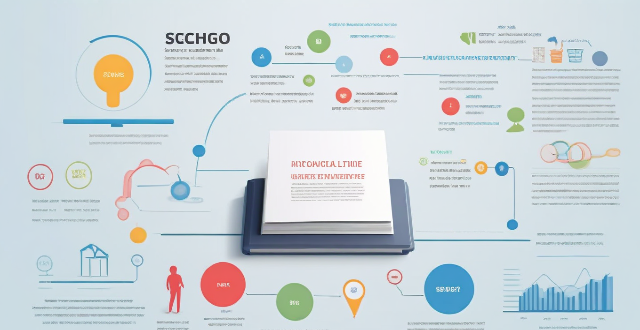
What role does self-discipline play in following a study plan ?
Self-discipline is crucial in following a study plan effectively. It involves setting goals, prioritizing tasks, maintaining focus on objectives, and avoiding distractions. By breaking down long-term goals into smaller, manageable tasks and allocating time wisely, self-disciplined individuals can maximize productivity and achieve academic success efficiently. Consistency, overcoming procrastination, and staying motivated are also key factors in sticking to a study plan. Developing strong self-discipline skills can help students reach their full potential.

What are the benefits of participating in parent-child activities together ?
Participating in parent-child activities together offers numerous benefits, including improved communication, stronger emotional connections, physical health benefits, cognitive development, social skills development, and the creation of lifelong memories. By engaging in these activities, families can strengthen their relationships, improve communication, and create lasting memories that will be cherished for years to come.

How can I make the most out of group study sessions ?
Group study sessions can be an incredibly effective way to learn and review material. By pooling knowledge, sharing insights, and engaging in collaborative learning, students can deepen their understanding of complex topics and improve their academic performance. To make the most out of group study sessions, consider the following strategies: ## Setting Clear Objectives - **Establish Goals**: Before diving into a study session, it's important to set clear objectives. Decide what topics or areas you want to cover and what you hope to achieve by the end of the session. - **Create an Agenda**: Prepare a structured agenda that outlines the topics to be discussed and the time allocated for each. This helps keep the study session focused and productive. ## Preparation is Key - **Assign Pre-reading**: Encourage all group members to do some pre-reading or pre-work before the session. This ensures everyone comes prepared with basic knowledge and questions to discuss. - **Bring Materials**: Each participant should bring relevant textbooks, notes, or any other materials that could facilitate the discussion. ## Active Participation - **Engage Actively**: Encourage all members to actively participate by asking questions, sharing insights, and contributing to discussions. - **Take Turns Teaching**: Rotate the role of "teacher" among group members. Research shows that teaching a concept to others reinforces your own understanding. ## Promote Collaboration - **Share Different Perspectives**: Each member may have a unique approach or perspective on the material. Encourage sharing these viewpoints to enrich the discussion. - **Brainstorm Together**: When confronted with challenging problems or concepts, work together to brainstorm solutions. ## Stay Focused - **Minimize Distractions**: Try to minimize distractions during the study session. Put away phones, limit side conversations, and create an environment conducive to learning. - **Stick to the Agenda**: Keep the discussion on track by referring back to the agenda and managing the time spent on each topic. ## Review and Reinforce - **Recap Key Points**: At the end of the session, summarize the key points covered. This helps reinforce learning and provides a quick reference for future studying. - **Assign Follow-up Tasks**: Assign tasks or exercises to be completed before the next session. This keeps the momentum going and ensures continued engagement with the material. ## Evaluate and Reflect - **Reflect on the Process**: Take a few minutes at the end of the session to reflect on what worked well and what could be improved. This helps fine-tune future study sessions. - **Evaluate Learning Outcomes**: Consider assessing your understanding through quizzes or short tests after a series of study sessions to evaluate the effectiveness of the group learning process.

How do I find scholarships specific to my field of study ?
Finding scholarships specific to your field of study can be a challenging task, but it is definitely worth the effort. Here are some steps you can take to find scholarships that match your academic interests and career goals: 1. Research your field thoroughly to identify key organizations, associations, and institutions that offer scholarships related to your area of interest. 2. Use online scholarship search engines such as Fastweb, ScholarshipOwl, and Cappex to find scholarships based on your academic achievements, extracurricular activities, and career goals. 3. Check with your school's financial aid office for information about scholarships specific to your field of study and resources such as scholarship databases or lists of local organizations that offer scholarships. 4. Attend scholarship workshops and events hosted by your school or local community organizations to network with professionals in your field and learn about scholarship opportunities. 5. Contact professional organizations and associations in your field directly to find out about available scholarships and application requirements.

How can I handle disagreements or differing opinions in a study group ?
In the text, the author provides a guide on how to handle disagreements in a study group. They suggest listening actively, staying calm and respectful, using "I" statements, finding common ground, compromising, taking breaks, and seeking mediation. The author emphasizes that handling disagreements requires patience, empathy, and effective communication skills. Overall, they argue that learning how to handle disagreements effectively can lead to stronger relationships and better outcomes.